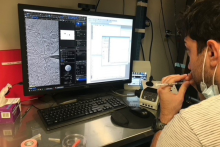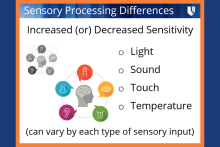
Advancing Behavioral Health Together
Greetings from Department Chair Dr. Moira Rynn

Thanks for taking time to check out our 2023 annual report—we’re grateful for your interest and support. While the report is packed with examples of the innovative and impactful clinical programs, training initiatives, and research currently underway, it merely scratches the surface of the many ways our stellar faculty, staff, and trainees are advancing behavioral health across each of our mission areas. And as our thriving health system continues to launch a new faculty clinical practice, I’m even more excited for the promising future of behavioral health at Duke. I hope you’ll stay in touch by visiting our website, following us on social media, and reaching out to us anytime.
— Moira Rynn, MD, department chair


Clinical Highlights
Duke Psychiatry & Behavioral Sciences offers a range of evidence-based, patient-centered outpatient clinical services to meet the behavioral health care needs of patients and their families. Faculty and staff provide a variety of assessment and treatment services, including psychiatric consultation, medication therapies, and individual, family and group psychotherapy.
Five Years of Expanding Access to Behavioral Health Care
Led by Duke Psychiatry's Nicole Heilbron, PhD, and Gary Maslow, MD, MPH, the North Carolina Psychiatry Access Line (NC-PAL) has been expanding access to behavioral health care to children and others throughout the state. NC-PAL leaders, staff, and partners gathered at a special event in Fall 2023 to celebrate the program’s five-year anniversary.
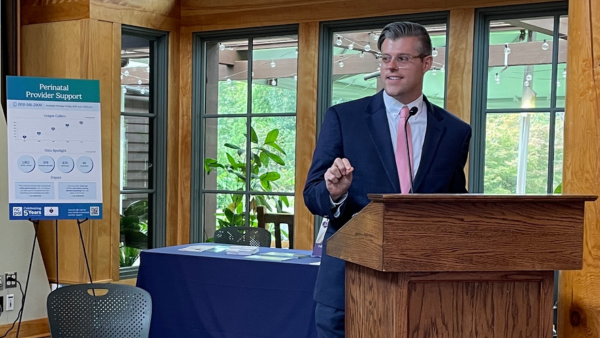
Impact of the Youth Behavioral Health Crisis in North Carolina
In this North Carolina Medical Journal invited commentary, behavioral health leaders including Duke Psychiatry chair Moira Rynn, MD, discuss the impact of the youth behavioral health crisis in North Carolina. There is a great need, they say, for more behavioral health services, a bigger workforce, and environments where children and adolescents can thrive.


Education Highlights
In Duke Psychiatry & Behavioral Sciences, we’re passionate about training future leaders in psychiatry and clinical psychology. Our trainees benefit from a well-rounded cadre of faculty members who are committed to their development, numerous clinics and labs in a world-class medical institution, and a community of fellow learners who share their ambition to improve people’s mental health and quality of life.

“Every day I see the benefits that med-psych’s whole-person care can offer to patients, and it’s wonderful to help develop the next generation of med-psych doctors.”
— Nicole Helmke, MD, new director of the internal medicine-psychiatry residency
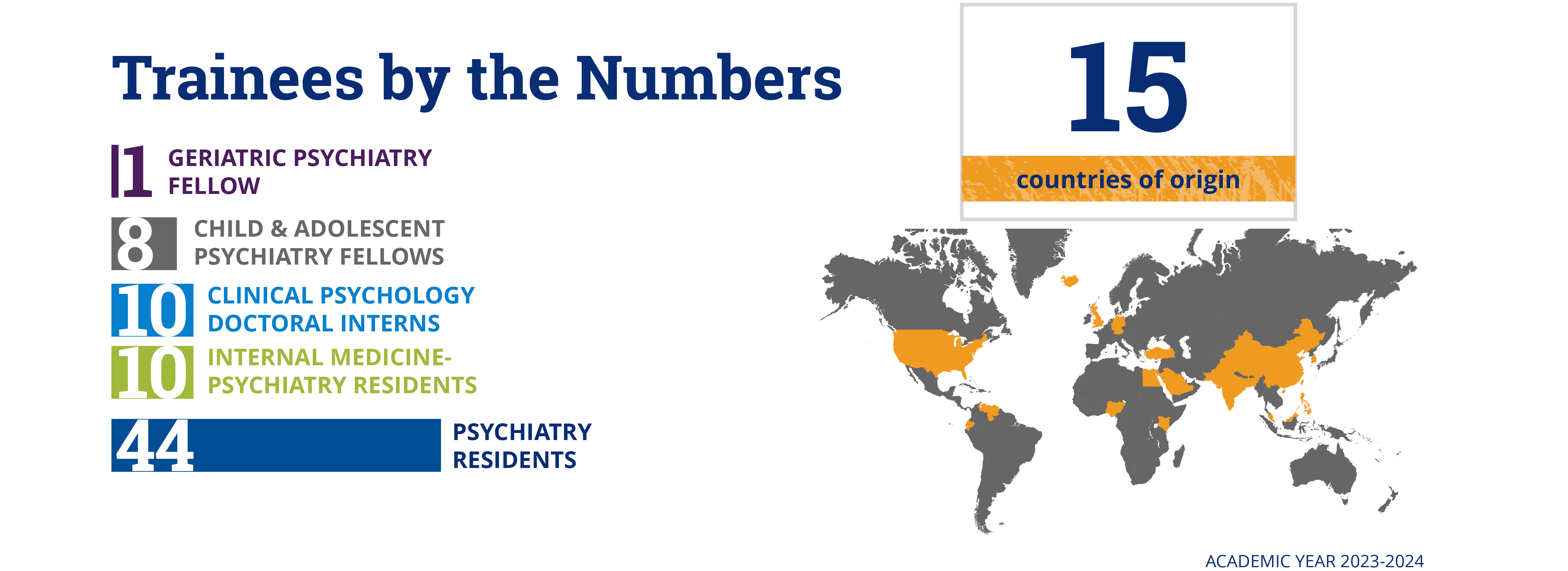

Research Highlights
Duke Psychiatry & Behavioral Sciences is an internationally recognized leader in laboratory and clinical research across a spectrum of areas in mental and behavioral health. Our faculty members’ grants from federal and other external sources support a diverse range of work that spans the translational continuum from bench to bedside and beyond.
First Presidential Distinguished Chair Awarded to Kafui Dzirasa
School of Medicine Dean Mary E. Klotman, MD, announced this week that Duke’s first Presidential Distinguished Chair will be named in honor of outgoing Chancellor for Health Affairs A. Eugene Washington, MD, and his wife, Marie. The professorship will be awarded to Duke Psychiatry's Kafui Dzirasa, MD, PhD.

Growing the Next Generation of Psychiatry and Psychology Researchers
Enriching the careers of our faculty members, staff members, and trainees is an integral component of Duke Psychiatry & Behavioral Sciences’ strategic plan. In recent years, department leaders have worked diligently to bring this goal to fruition for our research mission.

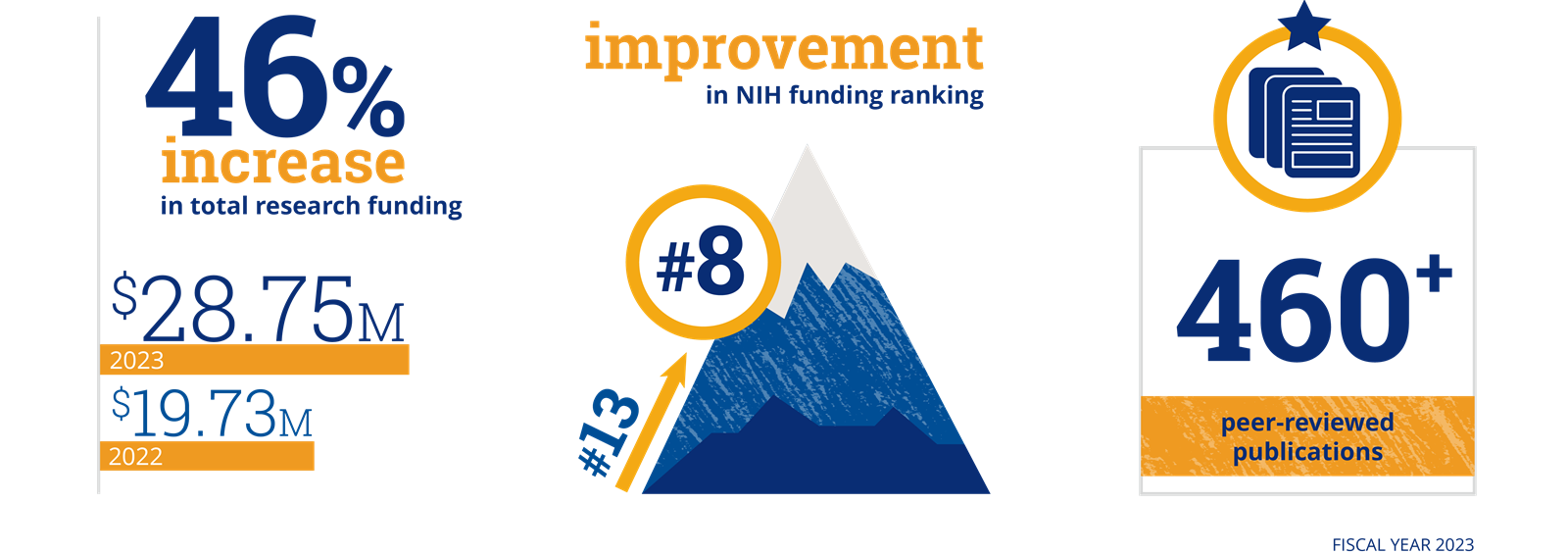

Culture, Engagement & Impact Highlights
Duke Psychiatry & Behavioral Sciences is committed to a diverse, inclusive, equitable, and just environment where all faculty, staff and trainees feel respected and valued regardless of gender, age, race, ethnicity, national origin, sexual orientation or identity, disability, education, discipline, or any other bias. We’ve launched and engaged in a range of initiatives to bring this vision to fruition.
Learn more about our culture, engagement, and impact efforts
Trent Lecture Explores Case Highlighting the History of Segregation in Medicine
Damon Tweedy, MD, professor of psychiatry and behavioral sciences, and Jeffrey Baker, MD, PhD, professor of pediatrics and director of the Trent Center for Bioethics, Humanities & History of Medicine, delivered the Trent Humanities in Medicine Lecture.
In their talk, “Remembering Maltheus Avery: Race, Medicine, and Duke Hospital in the Jim Crow Era,” they discussed the Avery case and why it remains important nearly 75 years later.


Across Campus

“Building synergy for neurodiversity across our research mission is key, alongside clinical services and training or workforce development. We try to be mindful and intentional about how to help patients access care and make the latest information available to anyone who’s seeking it.”
— Tara Chandrasekhar, MD

In the Community

“We heard from local Department of Social Services staff that they did not feel equipped to handle some of the mental health issues that come up and they didn’t always feel comfortable asking mental health professionals questions about diagnoses and medications. We hope to break down some of those barriers.”
— Courtney McMickens, MD, MPH, MHS

Philanthropy Highlights

“With the family’s continued commitment, we have been able to jump-start discoveries about the nature and treatment of misophonia. We are changing people’s lives and bringing hope. It’s an enormous and humbling privilege and I am forever grateful.”
— M. Zachary Rosenthal, PhD




